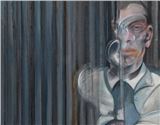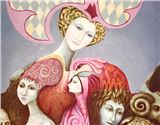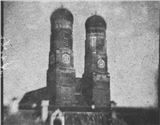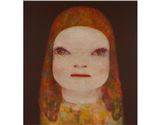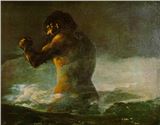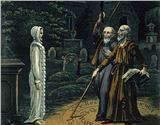Biography
Early Life & Education
Born on June 6, 1932, in Santa Ana, Manila, Federico Aguilar Alcuaz was the sixth of eleven children in a family shaped by intellectual and artistic sensibilities—his father, Mariano Aguilar, was a lawyer and musician, while his mother, Encarnación Alcuaz, managed the household. He completed his early education in Manila and earned a Bachelor of Fine Arts from the University of the Philippines, where he studied under National Artists Fernando Amorsolo and Guillermo Tolentino. Though he obtained a law degree from Ateneo de Manila University in 1955, he chose to pursue art full-time, marking the beginning of an international career rooted in cultural synthesis.
Key Life Events & Historical Context
In 1955, Alcuaz was awarded a scholarship by the Spanish Ministry of Foreign Affairs, enabling him to study at the Real Academia de Bellas Artes de San Fernando in Madrid. He later settled in Barcelona, where he became affiliated with the avant-garde La Punalada Group, engaging with artists such as Antoni Tàpies and Modest Cuixart. It was during this period that he adopted the hyphenated signature “Aguilar Alcuaz” to distinguish himself from others with the same name. In 1959, he met Ute Schmitz, whom he married in 1962; they had three sons—Christian, Andreas, and Matthias. His immersion in postwar European modernism coincided with the Cold War’s cultural ferment, allowing him to synthesize abstract expressionism and surrealism with Filipino sensibilities. This transcontinental dialogue defined his artistic voice and earned early recognition, including the Premio Moncada (1957) and the Prix Francisco Goya (1958). In 2009, he was conferred the National Artist for Visual Arts by the Philippines, affirming his role in shaping the nation’s modern art trajectory.
Influences
Alcuaz’s formative years were shaped by the academic realism of his mentors at the University of the Philippines, particularly Fernando Amorsolo and Guillermo Tolentino. However, his artistic transformation occurred in Barcelona, where his association with the La Punalada Group exposed him to radical European movements. The gestural intensity of Antoni Tàpies and the surrealist abstractions of Modest Cuixart profoundly influenced his shift toward expressive, non-representational forms. These encounters expanded his visual language, enabling a unique fusion of Western modernist techniques with organic and cultural motifs from the Philippines.
Artistic Career
Alcuaz launched his professional career with a solo exhibition at San Beda College in 1953, followed by shows at Centro Escolar University (1954) and the Philippine Art Gallery (1955). His international debut came in 1956 with exhibitions at the Museum of Contemporary Art in Madrid and Galerías Layetanas in Barcelona. A pivotal moment arrived in 1959 when he received second prize at the Prix Vancell during the 4th Biennial of Terrassa, validating his evolving abstract style. Over a five-decade career, he exhibited extensively across Europe, Asia, and the Americas, establishing himself as a leading figure in the global dissemination of Filipino modernism.
Artistic Style & Themes
Alcuaz’s work is defined by abstract compositions that evoke organic, vegetal, or visceral forms, often imbued with a primal, atmospheric tension. He worked across diverse media—oil on canvas, mixed media, ceramics, and textile art—demonstrating a relentless experimental spirit. Key works include *Yellow Mountains* (1982), a vibrant exploration of geological abstraction; *Woman by the Window* (1985), which merges figuration with emotive color fields; and *Sunset in Intramuros* (1979), an aerial interpretation of Manila’s historic core that blends topographical detail with lyrical abstraction. His landscapes and cityscapes reflect a deep engagement with place, memory, and the interplay between nature and urbanity.
Exhibitions & Representation
Alcuaz’s work has been presented in major institutional contexts, including a retrospective titled *Remembering Aguilar Alcuaz* at SM Megamall Art Center in 2012, commemorating his 80th birthday. In 2025, The Peninsula Manila unveiled three monumental Art Protis tapestries commissioned from his designs, underscoring his pioneering role in textile-based art. His pieces reside in the collections of the Museum of Contemporary Art in Barcelona, the Calouste Gulbenkian Foundation in London, and the Museum of Modern Art in Warsaw, affirming his presence in the international canon of postwar modernism.
Awards & Accolades
Alcuaz received early acclaim with the Premio Moncada (1957) and the Prix Francisco Goya (1958) in Barcelona. He was awarded the Diploma of Honor at the International Exhibition of Art Libre in Paris (1961) and received dual honors from the French government in 1964: the Decoration of Arts, Letters, and Sciences and the Order of French Genius. The Philippine government bestowed upon him the Presidential Medal of Merit in 2007, preceding his highest honor—the National Artist for Visual Arts award in 2009—for his transformative contributions to Philippine art.
Fun Fact
A connoisseur of life’s pleasures, Alcuaz was an accomplished cook and passionate musician, often hosting soirées where art, jazz, and gourmet cuisine intertwined. His love for fine dining and performance revealed a dimension of creativity beyond the canvas, embodying the spirit of a true *flâneur* of postwar cosmopolitan culture.
Legacy
Alcuaz’s synthesis of European modernism and Filipino thematic roots paved the way for subsequent generations of artists navigating transnational identities. His experimental use of mixed media and abstraction inspired contemporaries and successors to explore hybrid forms beyond traditional boundaries. By achieving critical recognition in both Western and Asian art centers, he redefined the possibilities for Filipino artists on the global stage. His legacy endures not only in museum collections and public installations but in the expanded vision of Philippine modernity he helped articulate—a vision where cultural duality becomes a source of creative power.

 ARTISTS
ARTISTS
